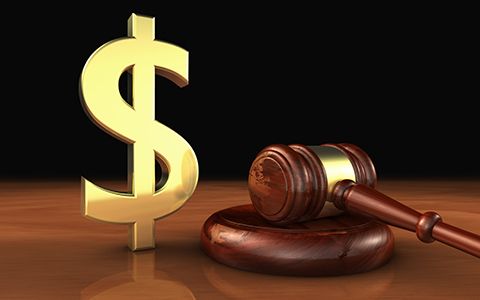
The New York Times was able to obtain a vast amount of documentation relating to Donald J. Trump’s tax records and business dealings. Of course, this story is politically controversial, especially at the height of the election. With that said, any future repercussions to the whistleblower are yet to be determined. What we know is that the tax documents obtained by the NYT are real and raise some serious questions about the structure of the Trump Organization and federal taxation issues.
This analysis will consider the following questions:
“Is the President just a smart and savvy businessman who is operating within the confines of the law,” or “If Donald J. Trump is not committing tax evasion and tax fraud, then who is and why do we have these laws in the first place?”
Essentially, what Donald J. Trump, the Trump family and the Trump Organization is doing is co-mingling funds. They have created a long list of shell companies, which gives them a green light (they believe) to live through those companies and take mass deductions to avoid paying taxes. As I see it, this would be considered a legitimate investigation for tax evasion by the Internal Revenue Service (IRS) and Federal authorities.
What is Tax Evasion?
Tax evasion is the use of illegal means to avoid paying taxes. Characteristically, tax evasion schemes involve an individual or corporation misrepresenting their income to the IRS.
Misrepresentation may take the form either of underreporting income, inflating deductions, or hiding money and its interest altogether in offshore accounts. As an example, the U.S. Government projected that fiscal year 2007 resulted in the government losing $345 billion because of tax evasion.[1]
Tax Evasion Statute: Title 26 U.S. Code § 7201[2]
Any person who willfully attempts in any manner to evade or defeat any tax imposed by this title or the payment thereof shall, in addition to other penalties provided by law, be guilty of a felony and, upon conviction thereof, shall be fined not more than $100,000 ($500,000 in the case of a corporation), or imprisoned not more than five years, or both, together with the costs of prosecution.
The Possible Tax Evasion Scheme by the Trump Family: Inflating Deductions
Most individuals commit tax evasion by taking deductions you are not allowed to take, or personal expenses that you essentially say are “business expenses.”
A pattern of this behavior will typically trigger audits. Sometimes, these audits can take many years due to the complexity of an individual’s financial behavior or a company’s web of moving money. This is exactly why the Trump family is under audit, not just some routine, randomly chosen audit.
The Problem for Trump and the Trump Family
For many years, Donald J. Trump has deducted millions of dollars as business expenses when they appear to be personal expenses. These are just examples of itemized deductions we know about from the NYT:
- Car service to and from home, to everywhere he goes (not just work).
- $70,000 on hair treatments.
- $100,000 expenses for Ivanka Trump’s hair and make-up artists.
- Investment Property on Seven Springs in New York:
- The Trump family has spent summers there since 1996, with no indication of it being an investment property; Trump wrote off $2.2 Million in property taxes.
- ‘Consulting’ fees:
- 20% of business organization paid for consulting fees. For example:
- Hotel – Azerbaijan (Made $5 M, paid $1.1 M in consulting fees)
- Hotel – Dubai (Made $3 M, paid $630K in consulting fees)
- Very likely, the “Consulting Fees” went back to the family. (This will be a huge part of the investigation.)
- 20% of business organization paid for consulting fees. For example:
- Ivanka Trump:
- She is an employee of the organization, paid by salary and received a $630K consulting fee. That exact figure looks familiar.
- Donald Trump Junior:
- Legal fees for criminal defense lawyers to the tune of $1.1 M regarding the meeting with Russian Operatives to get ‘dirt’ on Hillary Clinton.
Proving Tax Evasion against Donald Trump
Tax evasion, like most criminal cases, require a “mens rea” to prove the crime itself. In tax evasion, that mens rea is the willfulness element. Willfulness is the voluntary, intentional violation of legal duty.
Thus, we must ask, can the Government prove that Donald J. Trump willfully knew and understood that the practices in place were essentially in place to avoid paying income tax?
A defense in tax prosecutions is the reliance on tax professionals for working within the confines of the law. Another defense is having a good faith belief that can negate the willfulness aspect of tax evasion. These tests are, however, subjective and go to the heart of a pattern under which a person or company operates. If a pattern of untruthful and deceiving behavior is established, then a jury could find the conduct alleged to be willful.
The Truth
We will likely never know the full extent of how this came together, but Government cases on fraud and tax evasion are straightforward. Follow the money.
Based on the documentation provided by the NYT, a case can be made. Along with the truth, there comes the fact that Donald J. Trump is not alone, nor is he solely complicit. The Tax Code does provide loopholes, especially for the wealthy, to pay less income tax than required. However, are the loopholes so large that the super-wealthy can avoid paying any taxes altogether?
Where is this Heading for Trump?
The investigation into the monetary affairs of Donald J. Trump and the Trump Organization has likely been ongoing for some time now. I will not be surprised if the President and/or Trump family members are at some point in time federally charged with either Tax Evasion, Tax Fraud, Money Laundering, Mail Fraud, Wire Fraud, or Forfeiture Counts in the many millions. More to come, I’m sure.
